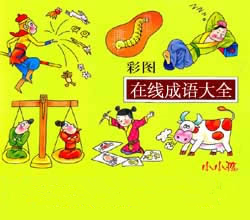英文读后感-《汤姆索亚历险记》读后感
I believe that one of the factors that makes a piece of literature or even a movie a masterpiece is how well the reader can relate to the story. This is definitely a book everyone can relate to.
The Adventures of Tom Sawyer is a literary masterpieces, written in 1876 by the famous author Mark Twain. Tom Sawyer is a mischievous young boy who lives in the small town on the Mississippi River called St. Petersburg. The story line is simple, the book reads like a biography or a memoir of a summer in Tom Sawyer's life.
Tom Sawyer seems to be the precursor of and the template for misfit kids such as Dennis the Menace, Malcolm in the Middle, and Calvin and Hobbs. What makes this story great is that Tom Sawyer represents everything that is great about childhood. The book is filled with Tom's adventures playing pirates and war with his friend Joe Harper. Tom has a trusted friend, Huck Finn, who few of the adults approve of. The book is filled with ideas of how the world works, such as how pirates and robbers work, that are so innocent, they could only come from a child. It is a story filled with action, adventure, ingenious ideas, love, and schoolyard politics. The whole story is seemingly a complication of what people did or wish they did during their childhood.
The book is a little difficult to read at first. Personally, it takes me a little while to get used to the 19th century dialect in the book. Other than referring to persons of African decent in derogatory terms (which I'm sure uses terms even young children already know), the book would be an enjoyable read for people of all ages. I highly recommend this book for anyone looking to feel young again, if just for a few hundred pages.
相关作文: 可爱的春天、幸运的小燕子、给风娃娃的一封信、童话故事作文100字、聪明的懒羊羊、小乌鸦爱妈妈、我的一个刚出生的亲妹妹、我的玩具小熊、我第一次做饭、我最喜欢的一种玩具热门作文成语素材
- 匪夷所思 匪:不是;夷:平常。指言谈行动离奇古怪,不是一般人根据常情所能想象的。
- 分我杯羹 羹:肉汁。楚、汉相争时,刘邦答项羽的话。比喻从别人那里分享一分利益。
- 安生服业 指平稳地生活,安心地从事自己的生业。
- 匪夷匪惠 夷:殷末周初的伯夷;惠:春秋时鲁国的柳下惠。既不是伯夷,又不是柳下惠;不具备这两位贤人的品德。形容才德不高而又驾驭的人。
- 熬清守谈 忍受清苦乏味的生活。
- 分茅裂土 原指古代帝王分封诸侯时举行的仪式。后称分封诸侯。
- 安分知足 安于本分,对自己所得到的待遇知道满足。
- 飞沙走砾 沙:沙土;砾:小石块。沙土飞扬,小石块滚动。形容风势很猛。
- 白眼相看 看别人时眼睛朝上或旁边,现出白眼珠,表示轻蔑,不屑一顾,对人不礼貌。
- 百不失一 一百次中无一次失误。表示射箭或打枪命中率高,或做事有充分把握。
- 百鸟朝凤 朝:朝见;凤:凤凰,古代传说中的鸟王。旧时喻指君主圣明而天下依附,后也比喻德高望重者众望所归。
- 诽誉在俗 诽:指诽谤;誉:赞扬;俗:风气、习惯。诽谤或赞扬在于当时的风习。后来引申指风气、习惯的作用非常大。
- 背城一战 背:背向。在自己城下和敌人决一死战。多指决定存亡的最后一战。
- 挨肩擦背 形容人多拥挤。
- 并为一谈 把不同的事物混在一起,当作同样的事物谈论。
